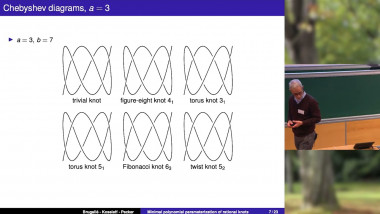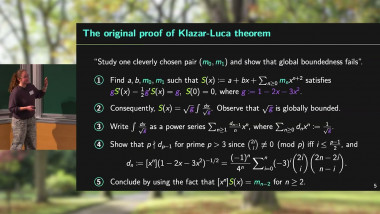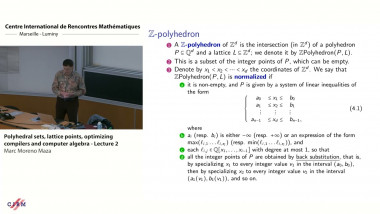Appears in collection : 2023 - T3 - WS3 - Computer algebra for functional equations in combinatorics and physics
The summation theory of difference rings provides general and efficient tools to derive linear recurrences for definite sums based on parameterized telescoping and to solve recurrences within the class of indefinite nested sums defined over hypergeometric products, q-hypergeometric products and more generally, mixed hypergeometric products and their nested versions. In particular, one can use these techniques to simplify definite multi-sums to representations in terms of the class indefinite nested sums defined over indefinite nested products. A special feature is that the representation of the arising sums and products are optimal in the sense that the objects interpreted as sequences (except root of unity products) do not satisfy any algebraic relations among each other. This leads not only to compact expressions in the final output, but also speeds up significantly the underlying summation algorithms. In particular, one gains a general (Galois) machinery to prove algorithmically algebraic independence of big classes of sums and products. We will illustrate this algorithmic difference ring toolbox by non-trivial applications coming from enumerative combinatorics and elementary particle physics.
















